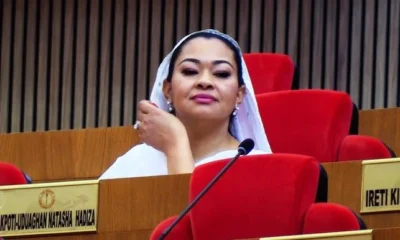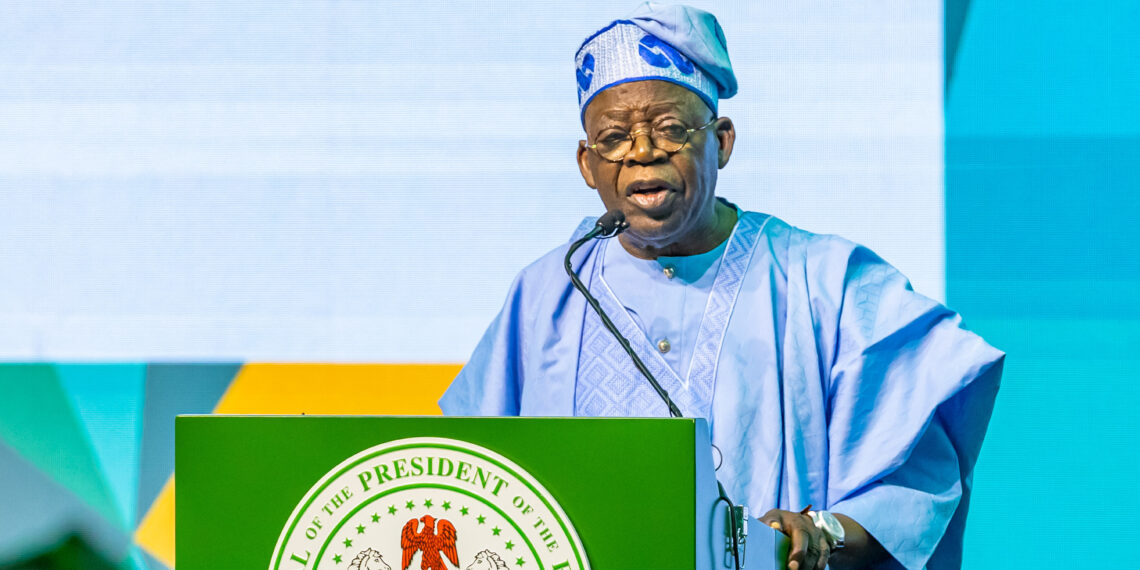An appeal court in London, the United Kingdom, has sentenced a Nigerian man to three years in jail for physically abusing his nine-year-old son.
The offender, 66, initially got away with 22 months imprisonment at the end of his trial at the Crown Court in Woolwich, South-east London, which the government disagreed with.
Following the government’s appeal against the trial court’s sentence, the Criminal Division of the Court of Appeal of England and Wales in London raised the punishment to three years jail term.
“The sentence of 22 months imprisonment will be quashed and replaced by a sentence of three years imprisonment,” the Court of Appeal ordered in its judgement delivered on 22 December 2022.
The trial Crown Court in Woolwich had sentenced the offender to a suspended sentence order, comprising a custodial term of 22 months, suspended for 12 months, with a two-month electronic curfew between 7.00 p.m. and 7.00 a.m.
He was also ordered to pay £500 in compensation to his son, whose name was withheld by the court because of his age, and costs in the sum of £250. A victim surcharge, meaning a fine, was also to apply, although the amount was not disclosed.
The names of all the parties connected to the case and the part of London where the crime was allegedly committed were not given in the court judgement. The court withheld the names because the case revolves around a child.
The UK government, through the Solicitor General for England and Wales, appealed against the sentence imposed by the Crown Court of Woolwich, describing it as unduly lenient.
It maintained that the trial court, imposing a 22-month custodial sentence, did not consider “any aggravating factors increasing the seriousness of the offence”.
What Transpired
The offender was born in Lagos, Nigeria, and moved to the United Kingdom in 1990.
At the time of this offence, he lived in London with his wife, his stepdaughter, aged 17, and his two biological children – the victim and his sister. His wife also had two adult sons who did not live with them.
His wife, the victim’s mother, during the lockdown when school children had migrated to online classes, was informed that the victim had not been attending his online school classes for two days. As a result, she barred him from playing computer games and told the father about the development.
On 22 January 2021, she left home to visit her eldest son leaving the victim with his sisters. Their father came home from work to find the victim using the computer.
According to the court documents, the father repeatedly struck him across the back using metal sticks or rods, which he retrieved from a basket next to the television in the living room. He also used his belt repeatedly to strike him on the back, arms and shoulders.
The nine-year-old son cried very loudly; one of his sisters witnessed the assault, while the other, who was upstairs at the time, heard his cries.
“When the physical assault had come to an end, the offender told E to hold a metal stick above his head and face the garden. He remained in this stress position for some two hours,” the court said.
‘E’, in this case, was the victim.
Two days later, the mother came home to find her son in pain.
“She saw the marks on his body. She confronted the offender, who admitted what he had done at that stage but did not accept that his actions were wrong.”
She took her child to the hospital, where he was found to have multiple horizontal bruises across his back and arms, linear in appearance and consistent with the use of a metal stick-like implement. He also had bruises on his shoulders and his head, as well as cuts to his hands.
The metal sticks used by the offender were provided to the police, and the father was arrested on 25 January 2021.
He said at that stage that he felt very remorseful but, when interviewed, denied assaulting the little boy, his son or any of his children with a stick or belt and denied putting him in a stressed position.
Instead, he blamed his wife. He said she had encouraged the kids to fabricate allegations against him because she was upset with him over citizenship and her family’s entry into this country.
The father was charged and remanded on bail with conditions which included a qualifying (electronically-monitored) curfew.
He pleaded not guilty throughout the pre-trial period, and the trial commenced on 10 June 2021 with cross-examination of the children.
The case was listed for further hearing between 6 and 10 June 2022. The recorded evidence of the children was played to the jury, and the mother gave live evidence.
After the prosecution had closed its case, the mother discovered text messages that her husband, the convict, had sent to her in January 2021 in which he had warned her and the victim not to say anything about what had happened.
On 10 June 2022, he pleaded guilty to cruelty to a person under 16 years old and was sentenced on 12 October 2022 by the Crown Court in Woolwich.
Solicitor General’s argument
The solicitor general’s office, through its lawyer, B. Lloyd, opposed the sentence passed by the trial court.
Although it acknowledged the judge correctly placed the offence in the right category of the relevant sentencing guideline, it insisted that a term significantly longer than 22 months imprisonment was merited.
He pointed out that the trial judge recognised that there was evidence during the trial of assault or general abusive behaviour involving other children in the family but did not count it as an aggravating factor against the offender.
“In short, the downward adjustment to 22 months, taking into account all aggravating and mitigating factors, was simply far too great,” Mr Lloyd had told the Court of Appeal in making a case for a longer sentence. “It did not reflect the overall seriousness of this offence.”
Defence
But the defence lawyer, N. Carter, justified the sentence imposed by the trial judge.
Ms Carter said the judge followed a considered and balanced approach and that the final sentence that he imposed could not be said to be unduly lenient.
She argued that the offender did not have deliberate disregard for his son’s welfare but instead wanted to instil proper standards in him.
“His offending was not of a sadistic or cruel nature. The victim and his siblings were clearly otherwise well looked after and provided for. All of this, coupled with the offender’s good character, justified the custodial term of 22 months,” she argued.
Court of Appeal’s judgement
In its judgement, the Court of Appeal said the trial Crown Court in Woolwich overlooked “multiple aggravating factors” in imposing its sentence.
“First, and significantly, there was the presence of other children. This was a significant factor in the facts here, given that one eight-year-old sibling was in the room when the offending occurred, and another was in a position to hear the victim’s distress. This was to witness the punishment of one child, instilling fear in others of similar treatment so far as they were concerned,” the three-member panel wrote in their judgement.
According to the court, there was also the failure to seek medical help, and the offender wrongly sought to blame others.
There was also an attempt to conceal his offence through text messages sent to his wife, the court said.
The panel noted that on the face of the Woolwich judge’s sentencing remarks, the judge appears to have been concerned about how to recognise the time spent by the offender on curfew.
“The judge should not have been distracted by that factor, at least at the outset; it was not relevant to the question of determining the correct length of a custodial sentence,” the panel wrote.
Having heard arguments from both sides, the court held that the offence warranted a custodial term of not less than three years, adding that there was no proper basis for the judge to have reached a custodial term outside the range for “Category 2A offending”.
“For all these reasons, and seen in this light, the term that the Judge imposed was not only lenient but unduly so,” it said.

 BIG STORY4 days ago
BIG STORY4 days ago
 BIG STORY3 days ago
BIG STORY3 days ago
 BIG STORY4 days ago
BIG STORY4 days ago
 BIG STORY3 days ago
BIG STORY3 days ago
 BIG STORY3 days ago
BIG STORY3 days ago
 BIG STORY3 days ago
BIG STORY3 days ago
 BIG STORY3 days ago
BIG STORY3 days ago
 BIG STORY3 days ago
BIG STORY3 days ago



























